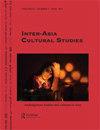甘地与马克思的比较对抗:日记与书信中的思考自我澄清
IF 0.4
4区 社会学
Q4 ANTHROPOLOGY
引用次数: 0
摘要
现在,我们可以在公共领域看到卡尔·马克思和莫汉达斯·卡拉姆昌德·甘地所写的几乎所有东西。两者都被广泛阅读,并且都对多少人(如果不是所有人)理解政治活动产生了重大影响。两人都是多产的作家,但他们的思想会超越他们表达的形式。接触到他们最私密的作品——日记、草稿、笔记本、私人信件——也许能让我们以一种回顾的方式更好地了解他们的思想。看看私人信件、著名政治人物的笔记本和日记,就会发现写作是一种自我澄清的工具,为正式发表所需的劳动提供了洞见。寻找公共文本是如何以更亲密的形式排练和组装给别人听的,也会引发关于谁来写作和阅读的问题,当然,还有什么被保留,什么被排除在出版之外。将马克思的笔记和草稿与《资本论》或甘地的日记与其已出版的版本进行比较,可能意味着在我们不同的分心环境中,提出不同的自我澄清问题。至于马克思和甘地,我们是否可以问一下,一个从事政治活动的人是否可能一直在写作?强调“对抗”本身可能是一种特权转移,只适用于那些将被依次衡量的人。本文章由计算机程序翻译,如有差异,请以英文原文为准。
Comparative adversaria of Gandhi and Marx: self-clarification through thinking in diaries and letters
ABSTRACT We can now see in the public sphere almost everything written by Karl Marx and Mohandas Karamchand Gandhi. Both are widely read, and both have had major impacts on how many people, if not all in some way, understand political activity. Both were prolific writers, but their ideas would exceed the forms in which they were expressed. Access to even their most intimate writings—diary, drafts, notebooks, personal letters—perhaps allows us to better see, in a retrospective way, their thinking unfold. Looking at private correspondence, notebooks and diaries of famous political figures reveal writing as a tool of self-clarification, providing insight into the labour required as a prelude to formal publication. Seeking out how public texts were rehearsed and assembled in more intimate forms for the ears of others also raises questions about who gets to write and read, and of course, what is retained and what is excluded by publication. Comparing Marx’s notebooks and drafts with Capital or Gandhi’s daily diary with its published versions might mean asking different self-clarifying questions, in our different contexts of distraction. And of Marx and Gandhi, might we ask if it is still possible for someone politically engaged to write all the time? An emphasis on “adversaria” may itself be a privileged diversion, available only to those who will be measured in turn.
求助全文
通过发布文献求助,成功后即可免费获取论文全文。
去求助
来源期刊

Inter-Asia Cultural Studies
Multiple-
CiteScore
0.90
自引率
20.00%
发文量
22
期刊介绍:
The cultural question is among the most important yet difficult subjects facing inter-Asia today. Throughout the 20th century, worldwide competition over capital, colonial history, and the Cold War has jeopardized interactions among cultures. Globalization of technology, regionalization of economy and the end of the Cold War have opened up a unique opportunity for cultural exchanges to take place. In response to global cultural changes, cultural studies has emerged internationally as an energetic field of scholarship. Inter-Asia Cultural Studies gives a long overdue voice, throughout the global intellectual community, to those concerned with inter-Asia processes.
 求助内容:
求助内容: 应助结果提醒方式:
应助结果提醒方式:


